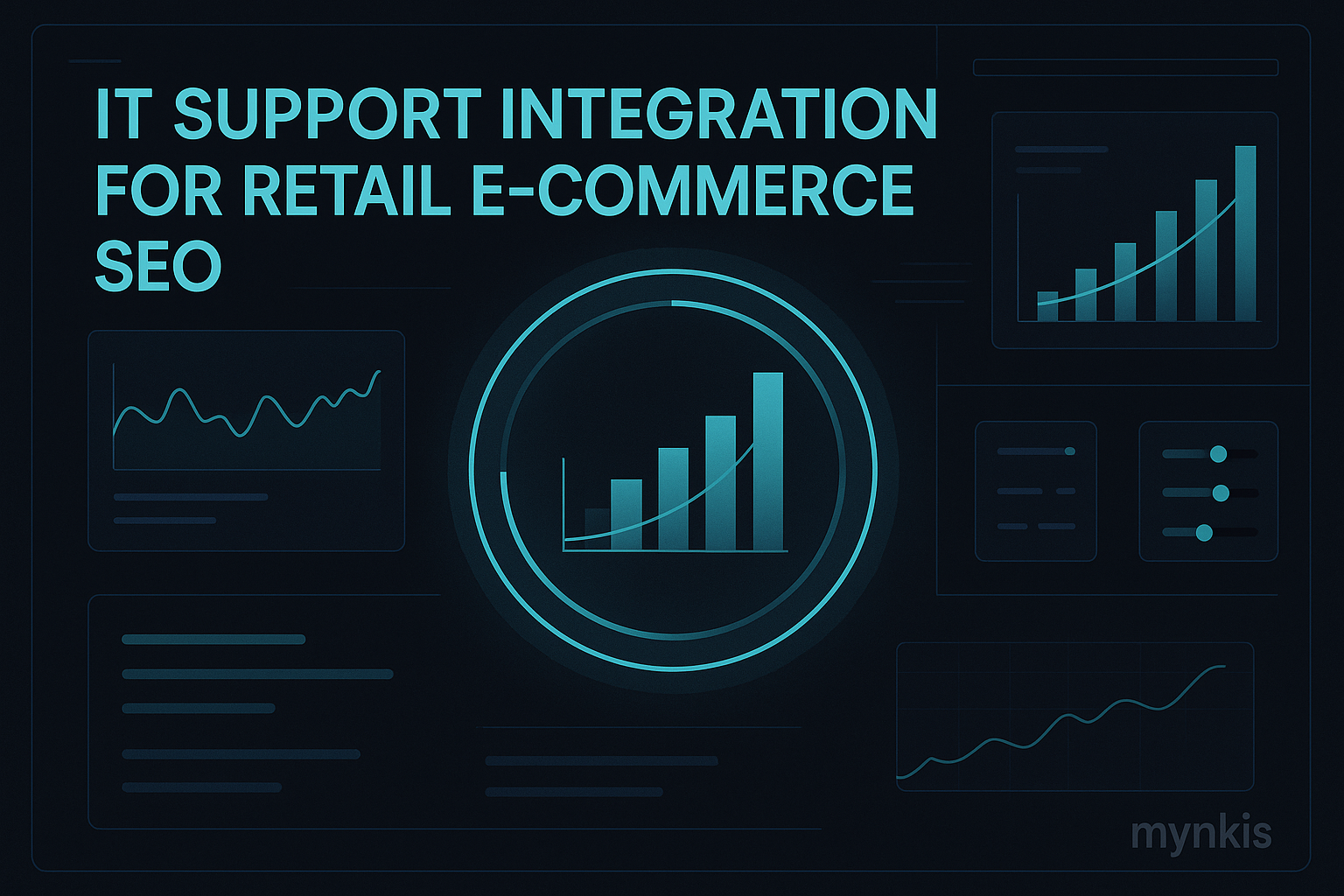Schedule a Demo
Integrating SEO effectively in an e-commerce environment requires more than just a few tweaks here and there—it demands a robust software solution supported by a solid IT framework. Drawing from my extensive experience in guiding retail clients through software development, I've seen firsthand how integrating SEO into the core development of an e-commerce platform can transform its online presence. IT support becomes indispensable in this scenario, ensuring that the systems and technologies underpinning the store are in sync with the SEO strategies for optimum performance.
When retailers think about expanding their reach, SEO might often take a backseat to direct advertising. However, as data from a study by Moz suggests, SEO can significantly boost organic search visibility without constant ad spend. A platform integrated with smart SEO won't just push your products to the top of search results but also improves the user experience, leading to higher conversion rates.
Building an e-commerce platform from scratch or customizing an existing one is no small task. It requires a meticulous approach where IT support plays a pivotal role. I recall a project with a mid-sized retailer; the custom development included seamlessly integrating an SEO toolset to ensure the store was always optimized. From dealing with server configurations to ensuring smooth operation of SEO plugins, IT support becomes the backbone that keeps everything running smoothly behind the scenes.
I've worked with operations managers who often underestimate the power of integrating IT support with SEO strategies. One poignant example is when a local boutique retailer was facing issues with load times that were killing their search rankings. Through a joint effort with their IT team, we not only fixed the technical issues but also included an IT-support-driven refresh of their SEO approach. Their e-commerce platform became more responsive, leading to better user engagement and a sustainable increase in organic traffic.
Every retailer's needs are different, requiring bespoke solutions. In another instance, I was involved with an S&P 500 company delving into niche products. They required advanced SEO tools customized for their unique market. Working hand-in-hand with their IT support, we developed algorithms that catered to their specific SEO needs, dramatically improving their organic search visibility.
SEO isn't static; it evolves with market trends and search engine algorithms. This continuous evolution mandates a robust IT infrastructure to accommodate these changes seamlessly. I have observed retailers who fail to update their IT support structures lag behind in SEO benefits. It's like upgrading the engine of a car not just for performance but for future compatibility with better roads.
Software development can be fraught with risks, especially when mixing SEO into the brew. IT support isn't just there to patch up errors; it's a proactive measure to avoid them altogether. My experience has shown me that comprehensive IT planning upfront can save retailers from significant SEO setbacks, ensuring the integrity and performance of the custom software solutions.
E-commerce platforms should always prioritize the user. Integrating SEO into these platforms, with solid IT support, directly impacts the user experience—faster load times, easy navigation, and relevant content all contribute to this. It's not just about achieving the highest rank on search engines; it's about fostering an environment where users are engaged and trust the store.
Retailers face a choice: build an in-house IT team or outsource IT support. My observations with S&P 500 clients have shown that outsourced IT teams bring specialized knowledge that might be too costly to develop internally. However, a mix often works best—key in-house staff who can communicate directly with an external IT team specializing in SEO optimization offer the agility needed in fast-paced markets.
Recently, I guided a client through a major SEO overhaul of their e-commerce store. The project began with mapping out SEO goals alongside IT capabilities. With guidance from Yoast SEO and technical support studies by Ahrefs, we revamped their site's architecture. An overhaul of their URL structures, meta tags, and internal linking not only quickened site speed (enabled by IT) but also crowned our successful organic search drive—a 35% increase in organic sessions within six months.
As search technologies advance, with voice search and visual AI search growing, the demand on e-commerce platforms to integrate these into their SEO strategies becomes clear. Yet this futureproofing is contingent on a scale-up in IT support. Based on available research and current trends, future e-commerce platforms are likely to depend even more on dynamic SEO strategies powered by cutting-edge IT solutions—retailers must stay ahead of this curve.
Many overlook the importance of ongoing SEO training for their teams alongside integrating robust IT support. From my experience, digital marketing teams that partake in continuous learning adapt more readily to SEO implementation. Insourcing basics, while tapping into external SEO experts for nuanced advice, keeps a store's team current and responsive in a rapidly changing SEO landscape.
Retailers can take several practical steps to ensure their e-commerce platform excels with SEO and IT integration:
